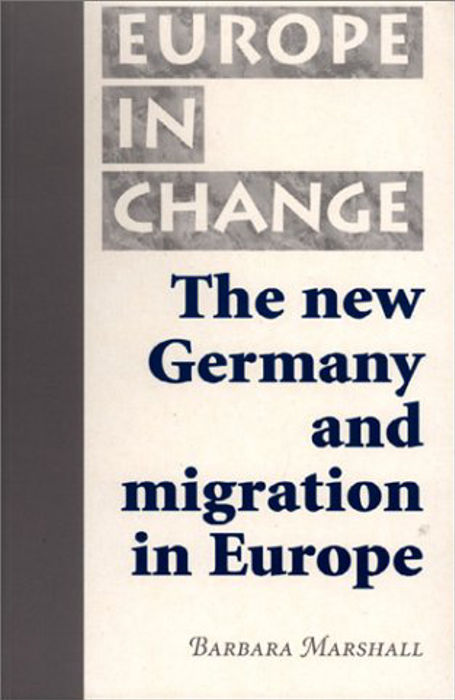Books
Barbara Marshall
The New Germany and Migration in Europe (Europe in Change)
How did reunified Germany move from being a reluctant country of immigration to a central player in shaping European migration policy? The New Germany and Migration in Europe explores the transformation of German migration policy in the context of demographic change, EU enlargement, and the challenges of integration.
This book examines Germany’s evolving role as both a destination and a policymaker in European migration. In the 1990s and early 2000s, Germany faced pressing economic and demographic needs for immigrants, even as public debate and political gridlock slowed comprehensive reform. The historic 2001 commission on immigration, led by Rita Süssmuth, marked a turning point by declaring that “Germany needs immigrants,” and recommending a shift to a managed migration system, including a points-based approach and the creation of a Federal Office for Immigration and Integration. These proposals sparked intense debate between progressive and conservative forces, ultimately leading to Germany’s first comprehensive immigration law, which came into force in 2005 and streamlined residence permits, opened pathways for skilled workers, and improved integration measures.
The book also explores Germany’s adaptation to EU-driven migration policies, such as the free movement of people, harmonization of asylum procedures, and the influence of EU directives on national law. It discusses the impact of the “guest worker” legacy, the integration of large Turkish and other foreign communities, and the gradual shift from restrictive to more open, albeit still contested, migration policies. The analysis extends to Germany’s role in responding to the migration challenges of EU enlargement and the evolving Common European Asylum System.
The New Germany and Migration in Europe stands out for its detailed account of how Germany’s migration policy has shifted from national reluctance to European engagement. By situating domestic reforms within the broader context of EU integration and demographic change, the book offers a nuanced perspective on Germany’s journey to becoming a key actor in shaping European migration and integration policy.

